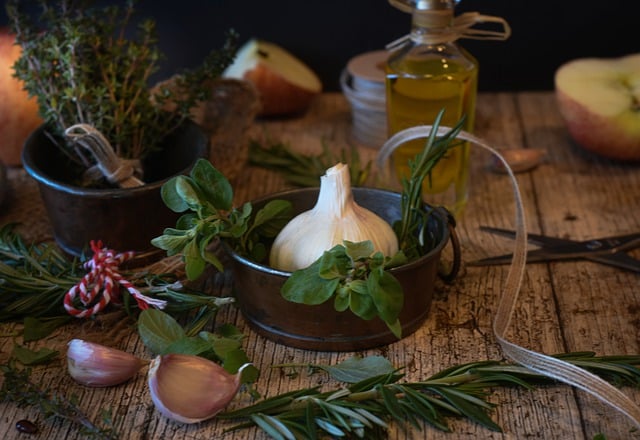
9 min read
Reviewed and Updated: August 20th, 2025
High cholesterol levels are a widespread medical issue experienced by millions of people worldwide every year, especially in the United States. Cholesterol is necessary to develop healthy cells. However, high levels of it can cause several problems, such as increasing your risk of heart disease, heart attacks, and strokes. The primary steps you can take to maintain healthy cholesterol levels are to exercise and eat a healthy diet. This leaves some wondering if there’s more they can do and whether there might be any natural remedies for high cholesterol.
The following is a list of several herbs, supplements, and foods that can help to improve your cholesterol levels when taken regularly.
Disclaimer: These are remedies that have been associated with healthier cholesterol levels over time. They are not a replacement for medications. Do not cease taking any medications you’re prescribed without consulting your physician.
[Related: Omega-3 Deficiency Symptoms and How to Make Sure You're Getting Enough]
Herbs that may lower cholesterol
The following is a list of several herbs that have been shown to help promote improvements in the cholesterol levels of those who use them. Read through each and consider whether you might want to work them into your diet and health routine.
Ginseng
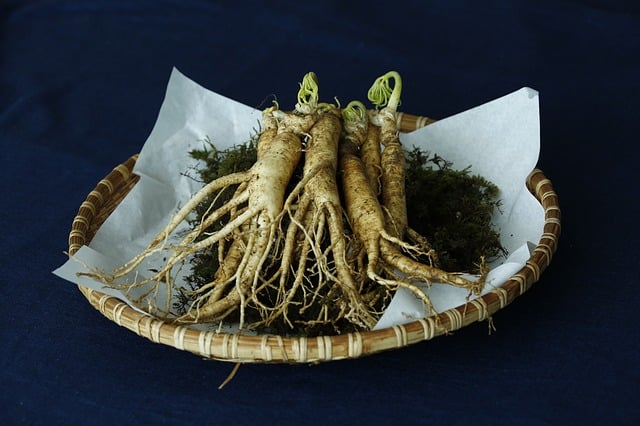
This herb has been used in various Asian medicines for centuries. Some studies have indicated it can help support healthy levels of both “bad” low-density lipoproteins (LDL) cholesterol and “good” high-density lipoprotein (HDL) cholesterol. Ginseng is available in supplements and can also be found in a range of everyday products, like teas and coffees.
The recommended dosage is between 200 - 400 mg daily from extract. Keep in mind that ginseng can decrease the effects of warfarin (a well-known anticoagulant), increase the risk of bleeding when taking aspirin or NSAIDs (like ibuprofen and naproxen), interact with diabetes and heart medications, and some stimulants and antidepressants.
Artichoke Leaf
Much like ginseng, artichoke leaf has been used in medicine throughout history, particularly as an aid for helping support healthy cholesterol levels. Artichoke leaf actually has some of the strongest evidence as a natural remedy for high cholesterol as it was evaluated in a double-blind, randomized placebo-controlled trial.
Furthermore, a meta-analysis of 11 randomized controlled trials (RCTs) with 775 participants, showed reductions of total cholesterol, LDL, and modest triglyceride decrease. The recommended dosage is between 500 mg to 2,800 mg daily in divided doses and in its extract form. Note that it may interact with diabetes and blood pressure medications.
Hawthorn
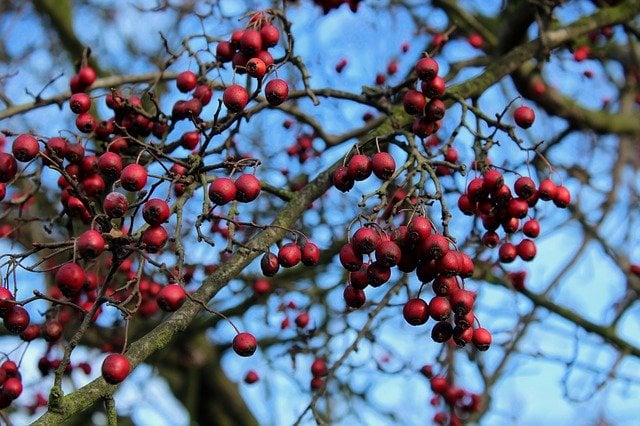
Hawthorn is a type of shrub related to roses. Its berries, flowers, and leaves have all been used to improve heart health dating back to the height of the Roman Empire. While some research regarding its effectiveness is conflicting, a large quantity supports heart health benefits. The recommended dose is between 160 - 900 mg per day. However, hawthorn can potentially interact negatively with some prescription medications, so it’s especially important to consult your doctor before use.
Astragalus
This is an herb used to help support the body’s immune system in traditional forms of Chinese medicine. It has anti-inflammatory and antibacterial properties and is considered an adaptogen, meaning it may help protect the body from diseases. Though studies suggesting that astragalus provides heart benefits have been relatively limited, they have demonstrated promising results.
For example, in a three-month study on hamsters, astragalus significantly lowered plasma total cholesterol by 45.8%, triglycerides by 30%, and low-density lipoprotein-cholesterol by 47.4%. Typical doses are between 500 - 1,500 mg per day. This herb is relatively safe and the only caution is for individuals with autoimmune diseases.
Guggulipid
This substance is a form of gum resin that can be collected from the Mukul myrrh tree, and it has been used in traditional ayurvedic medicine for more than 2,000 years. Clinical studies have indicated that it can lower both total cholesterol blood levels (up to 10-33% reduction) and LDL cholesterol levels, however, its method of action isn’t well understood as of yet. The recommended dosage is 500 - 1000 mg twice daily and may interfere with thyroid medications, increase the effects of diabetes medications, and lower the efficacy of heart medications.
[Related: Calcium Carbonate vs. Calcium Citrate: Which Calcium Supplement is Right for You?]
Silymarin (Silybum marianum L)
Otherwise known as milk thistle, this flowering herb has been shown to potentially help lower people’s chances of developing heart disease by lowering LDL cholesterol levels. One placebo-controlled study has shown that participants who took milk thistle had decreased their cholesterol levels vs those who only took the placebo. The recommended dosage is between 200 - 400 mg two to three times daily in its extract form.
Alfalfa (Medicago Sativa)
Alfalfa has had its effectiveness as a natural cholesterol remedy confirmed by numerous animal studies and several small human trials including one with 15 participants which found that on average, eating 40 grams of alfalfa seeds 3 times per day decreased total cholesterol by 17% and “bad” LDL cholesterol by 18% after 8 weeks.
Fenugreek (Trigonella foenum graecum L)
Fenugreek has been used for centuries in Asia to improve digestion. Some research shows that regular consumption of fenugreek seeds can help lower levels of bad LDL cholesterol while also increasing levels of good HDL cholesterol. It may also help to reduce triglyceride levels. Multiple randomized controlled trials reported reductions in total cholesterol between 15-33%, LDL reductions, and slight HDL increase. The method by which fenugreek lowers cholesterol isn’t understood just yet but is hypothesized to be due to its flavonoid and antioxidant content. The recommended daily dose is 10-15 grams of seeds or equivalent extract. Fenugreek may increase the effects of certain heart and diabetes medications.
Soybean (Glycine Max)

While it doesn’t significantly lower cholesterol levels, some evidence has suggested that soybeans and soybean-based foods can slightly reduce LDL cholesterol levels. The way that it lowers cholesterol is different from the other remedies so far. Cholesterol is only found in animal products so substituting soy products for meat, can result in slightly lower serum cholesterol levels. Keep in mind that dietary cholesterol is ½ the picture. The liver produces about 800 mg of cholesterol per day compared to the 200mg the average person takes in from their diet.
Supplements that may help lower cholesterol
Below are multiple supplements that have been scientifically shown to help improve serum cholesterol levels when taken regularly. Like with the herbs discussed above, read through their descriptions and if you think they would be beneficial for you, discuss it with your physician.
Berberine
Meta-analyses on Berberine studies show reductions in LDL Cholesterol, triglycerides, and total cholesterol after 12 weeks of use. Berberine works differently from conventional statin medications meaning that it can be used as an addition to statin therapy and enhance the lipid-lowering effects; but more research is needed.
The recommended dose is 500 mg two or three times daily. Berberine can also help with weight loss but should be avoided during pregnancy or breastfeeding. It may interact with different medications, therefore, always consult your physician before using it.
Niacin (Vitamin B3)
Niacin is known to have promising impacts on helping people boost their levels of good HDL cholesterol while also lowering the number of triglycerides in their bodies. It has also been shown to be moderately helpful in reducing levels of bad LDL cholesterol. Niacin can have negative interactions with drugs and it doesn’t appear to offer additional benefit to those already taking statins.
Sytrinol
Sytrinol is a popular supplement consisting of polymethoxylated flavones (PMFs) from citrus and palm tocotrienols. It’s thought that these two substances working together can improve factors related to heart health. In a double-blind study where participants each took a 300-milligram capsule of Sytrinol per day, they saw improvements in total cholesterol up to 30 percent in just 30 days.
Omega-3
Omega-3 fatty acids found in a range of fish and fish oils have been shown to help reduce people’s risk of heart disease and heart attacks and are essential for a healthy diet. The tastiest way to get your Omega-3 is to have fatty, coldwater fish like salmon, mackerel, or trout 1-2 times per week. If you don’t like fish, consider an Omega-3 fish oil supplement. When choosing an Omega-3 supplement, make sure it has both EPA (eicosapentaenoic acid) and DHA (docosahexaenoic acid).
Red yeast rice
Red yeast rice is a traditional cooking ingredient that is derived from growing yeast on white rice. It’s also used as a traditional herbal remedy that has been shown to help lower your blood cholesterol. This is due to the monacolin K that it contains, which has striking similarities to cholesterol-lowering drugs like statins (Mayo Clinic).
Multiple trials show 16 - 31% reductions in total cholesterol compared to placebo. The recommended effective doses range between 10-20 mg (monacolin K) per day. This herb can interact with “statins” which are cholesterol medications and it may also cause muscle pain (myopathy) similar to statin drugs.
Plant sterol and stanol supplements
Plant sterol is found in a wide range of fruits, veggies, grains, seeds, nuts, and various other plants, though it can also be found in some processed foods like orange juice and yogurt. It may lower your overall risk of heart disease and cholesterol levels because it helps prevent cholesterol absorption in your small intestine.
Consistent evidence shows that 1.5 - 3 grams per day reduces LDL by 7-15% within 2-3 weeks and its effect is maintained long-term. The dosage mentioned above should be ideally consumed in divided doses and with meals.
Fiber
Fiber supplements can help ensure that you receive your recommended amount of daily fiber, which can help decrease blood cholesterol levels. The mayo clinic estimates that one can benefit from taking 5-10 grams per day. Some common fiber supplements that people can try include calcium polycarbophil, psyllium, methylcellulose, and wheat dextrin. Soluble fiber consumption is very safe but may slow absorption of other oral medications so it is advised to take 1-2 hours apart.
Whey protein
This milk-based protein can be acquired through the consumption of various dairy products and supplements. Studies have indicated that it can help lower both your body’s LDL levels and cholesterol in general. A study on overweight individuals in which they each took 54 grams of whey protein daily resulted in significantly lower serum cholesterol levels. While the effects in other studies weren’t as dramatic, it could be differences resulting from study design or that an individual’s weight could be a factor.
Policosanol
Policosanol is produced from sugar cane and has been effective in lowering LDL cholesterol in several scientific studies. One of the studies was a 6-month double-blind study with 89 participants that saw significant differences after 24 weeks. While it can also be extracted from beeswax, there is no evidence that it can affect cholesterol levels when not extracted from sugar cane.
[Related: Can a Glass of Red Wine a Day Keep the Doctor Away?: 10 Benefits of Drinking Red Wine]
Foods That May Help Lower Cholesterol
The following are two foods that have shown some promising effects in lowering and helping people better manage their blood cholesterol levels in various scientific studies.
Garlic
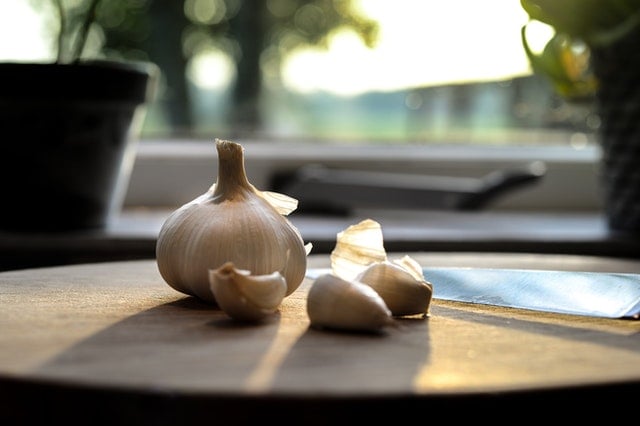
Garlic is a delicious cooking ingredient used across cultures worldwide. Research has suggests that it may help lower both blood cholesterol levels and blood pressure.
Meta-analysis of randomized controlled trials showed reduction in LDL and modest effect on total cholesterol after 8 weeks of use. Studies have also indicated that it may be effective in helping slow the process of atherosclerosis. The recommended dose is between 600 - 1,200 mg per day of extract. Keep in mind that garlic supplementation may increase the bleeding risk if you are taking warfarin, aspirin, and NSAIDs, may reduce the efficacy of certain antivirals (specifically HIV medications), and may interact with blood pressure medications.
Flax Seed
Flax seeds contain high levels of alpha-linolenic acid (ALA), an omega-3 fatty acid that may help lower a person’s risk of heart disease. Research on its effectiveness is mixed, though they do suggest that flax seeds may be beneficial in helping to lower cholesterol levels.
[Related: Foods That Increase Blood Flow and Circulation]
Diet and Lifestyle Changes
Aside from herbs and supplements, one of the best things you can do to help control and lower your blood cholesterol is making some basic lifestyle changes, particularly regarding how you eat and exercise. If you’d like to take control of your cholesterol levels today, there are several things you can do, including:
- Maintaining a healthy weight
- Exercising most days of the week
- Eating more heart-healthy foods and eliminating trans fats from your diet
- Limiting your intake of animal products especially red and processed meat
- Drinking alcohol in moderation
- Not smoking
- Limiting your consumption of saturated fats
- Taking steps to reduce your stress levels
Medications
While this article is primarily intended to focus on natural remedies for high cholesterol levels, we’d also like to take a moment to list some of the more common medications that your doctors may prescribe you to improve your cholesterol. These medications include:
- Cholesterol absorption inhibitors (also referred to as cholestyramine)
- Injectable drugs (such as evolocumab)
- A range of Statins medications (including atorvastatin, lovastatin, pitavastatin, and several others)
Bottom Line
As with so many other areas of your health, the best thing you can do to contribute to healthier cholesterol levels is to live a healthier lifestyle which will mean regular exercise and eating a diet rich in fruits and vegetables. Since every bit counts, there are many natural remedies that have shown more and less effectiveness at decreasing cholesterol levels. If you feel any of these could be a part of your own health regimen, talk to your doctor and see if they're right for you and that any normal amount won't interfere with any medications you're taking.
* This article is for informational purposes only and doesn’t constitute medical advice. For immediate health concerns, please consult your physician.
These statements have not been evaluated by the Food and Drug Administration. Products are not intended to diagnose, treat, cure or prevent disease.
© 2025 Best in Nature All rights reserved







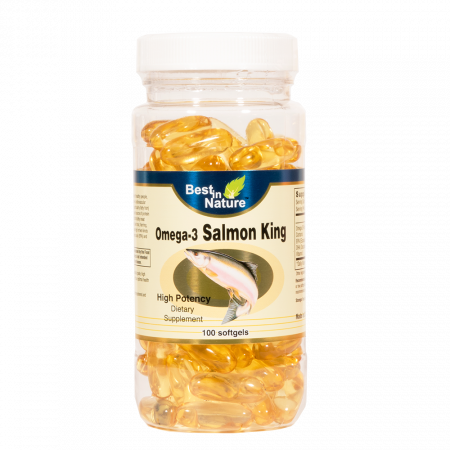
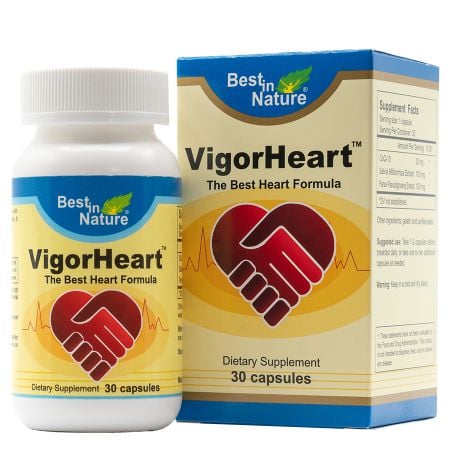
Validate your login
Sign In
Create New Account